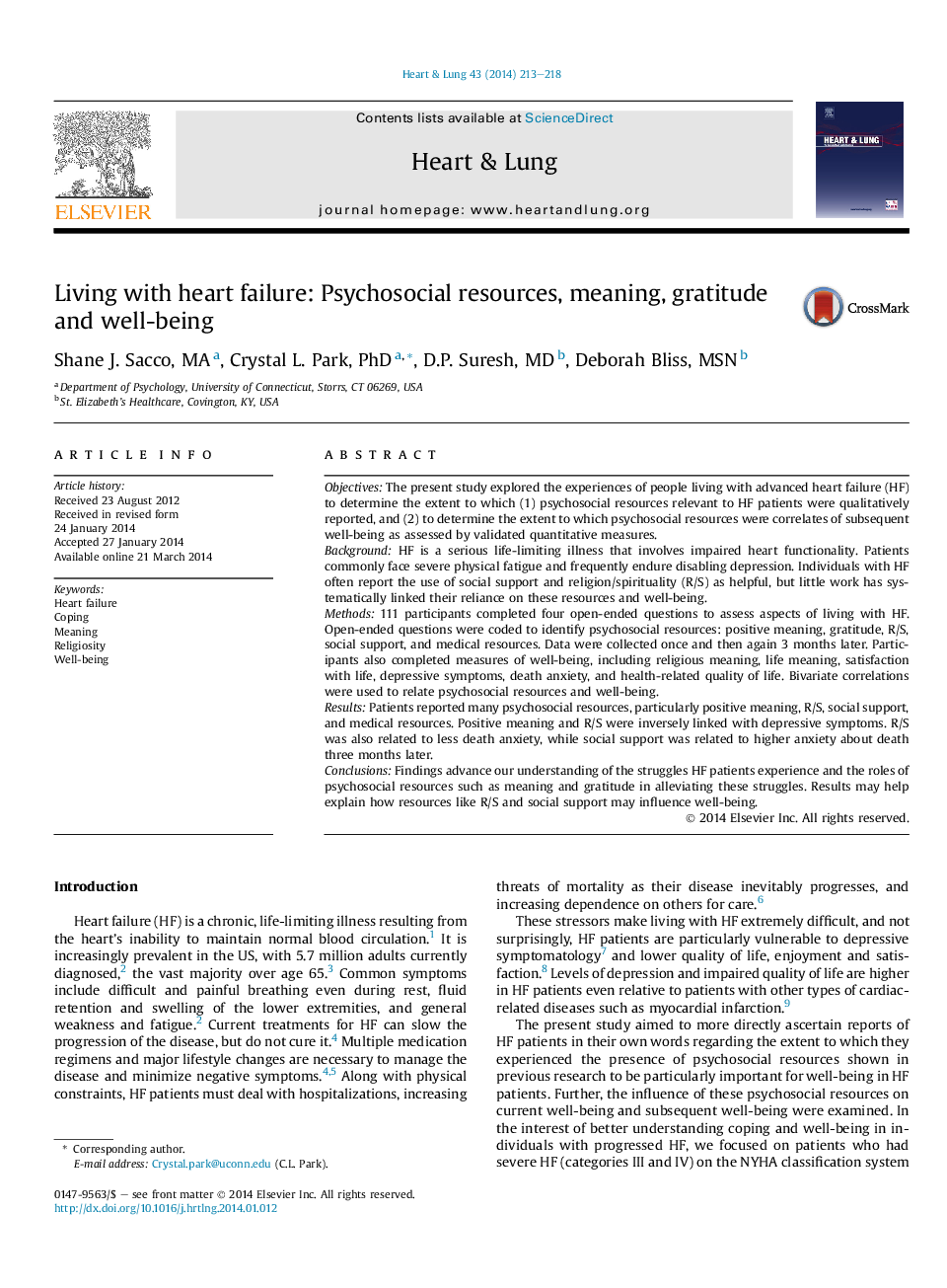| Article ID | Journal | Published Year | Pages | File Type |
|---|---|---|---|---|
| 2650531 | Heart & Lung: The Journal of Acute and Critical Care | 2014 | 6 Pages |
ObjectivesThe present study explored the experiences of people living with advanced heart failure (HF) to determine the extent to which (1) psychosocial resources relevant to HF patients were qualitatively reported, and (2) to determine the extent to which psychosocial resources were correlates of subsequent well-being as assessed by validated quantitative measures.BackgroundHF is a serious life-limiting illness that involves impaired heart functionality. Patients commonly face severe physical fatigue and frequently endure disabling depression. Individuals with HF often report the use of social support and religion/spirituality (R/S) as helpful, but little work has systematically linked their reliance on these resources and well-being.Methods111 participants completed four open-ended questions to assess aspects of living with HF. Open-ended questions were coded to identify psychosocial resources: positive meaning, gratitude, R/S, social support, and medical resources. Data were collected once and then again 3 months later. Participants also completed measures of well-being, including religious meaning, life meaning, satisfaction with life, depressive symptoms, death anxiety, and health-related quality of life. Bivariate correlations were used to relate psychosocial resources and well-being.ResultsPatients reported many psychosocial resources, particularly positive meaning, R/S, social support, and medical resources. Positive meaning and R/S were inversely linked with depressive symptoms. R/S was also related to less death anxiety, while social support was related to higher anxiety about death three months later.ConclusionsFindings advance our understanding of the struggles HF patients experience and the roles of psychosocial resources such as meaning and gratitude in alleviating these struggles. Results may help explain how resources like R/S and social support may influence well-being.
